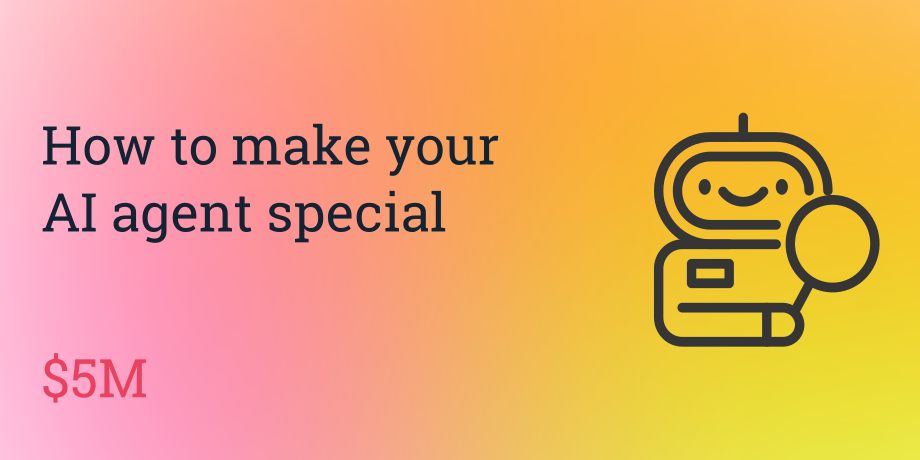The problem
Customer service is important for any company because it’s the direct connection between your customers and your business. Good customer service helps retain your customers and improves their loyalty. Also, good customer service always gets you more referrals and boosts your sales.
However, establishing good customer support is non trivial task. The business can be strong enough in technology or their products but customer service is an independent field of expertise that needs to be created and maintained. Understanding that some companies build their own customer support departments. Others outsource these activities to third-party companies. But how to be sure that your customer service is always at a top level?
The solution
Imagine that you have the support service that is immediately ready to help your customer resolve any issue but what is more important, eager to do it being truly emotionally involved into resolving this issue? That is what our today’s company doing. Siena (https://www.siena.cx) offers exactly the same, or in other words – “Empathic AI CX agent” that works 24/7 and makes customers smile.
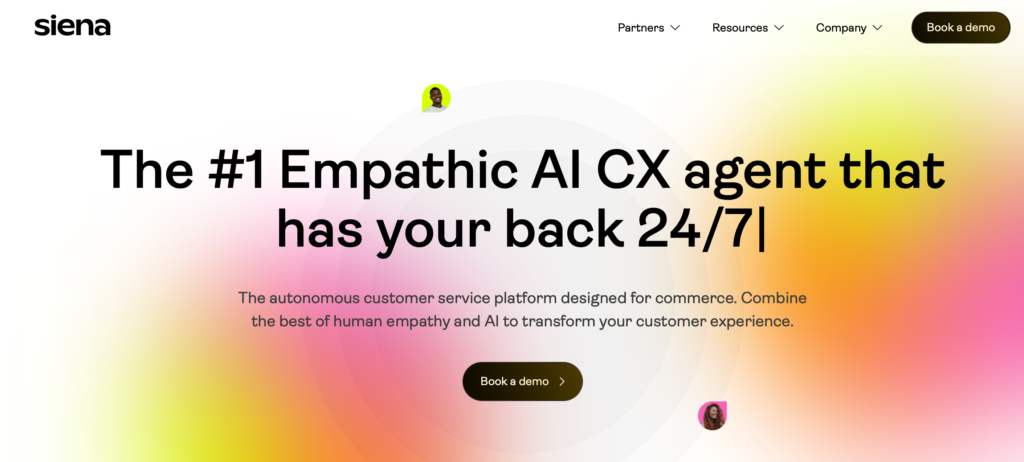
The first part of this slogan about 24/7 support is clear, and all AI agents will do the same. However, the second part is different. Siena aims to differentiate from other companies offering chatbots with AI that excels in empathy and contextual understanding. In other words, Siena’s chatbots are intended to feel and express emotions as humans do.
The company has an intriguing marketing message that is clearly more targeted towards investors. Rather than claiming to provide another AI chatbot, it proclaims to be building “the future of autonomous customer experience”.
Customer satisfaction scores are crucial for any business, especially B2C companies. Siena not only offers automation but also promises to improve these scores. According to their data, the average Customer Satisfaction Score (CSAT) of their clients is 4.81. This figure is supported by over 50,000 positive customer reviews. While it’s difficult to evaluate this score without considering various factors, it generally appears impressive.
Generally, Sienna allows businesses to focus on their core competencies by outsourcing customer experience to an AI agent.
How it works
The agent can be integrated with the existing help desk tools and autonomously resolves 80% of customer queries across various channels.

The integration process is simple and can be done in one click. The platform is compatible with help desks such as Gorgias, Zendesk, Kustomer, Gladly, and Intercom. It can also integrate with eCommerce platforms like Shopify, Skio, Stay AI, Ordergroove, Smartrr, Recharge, and Prive.
Siena manages a variety of tasks autonomously – tracking orders, issuing replacements, updating shipping addresses, adjusting subscription frequencies, or managing pauses and skips in subscription services.
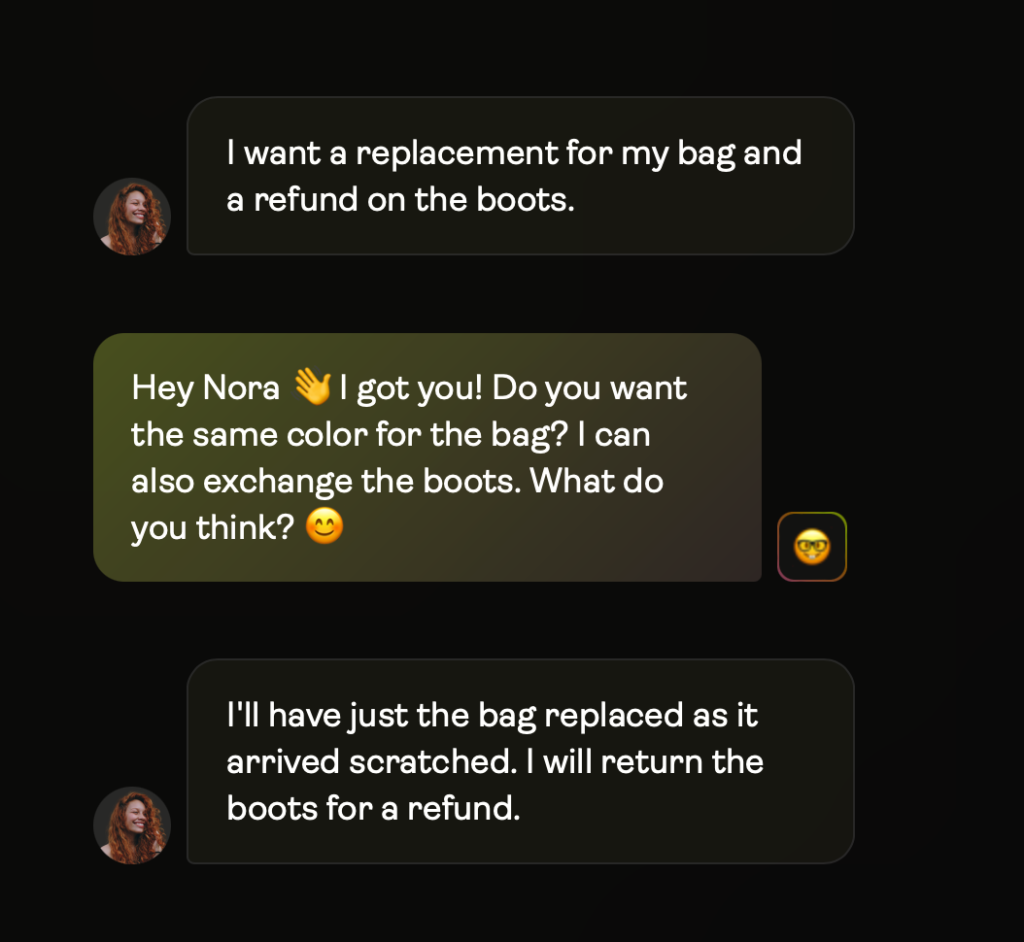
However, as mentioned earlier, their primary focus is not just to automate customer experience (CX), but to reshape the overall customer experience.
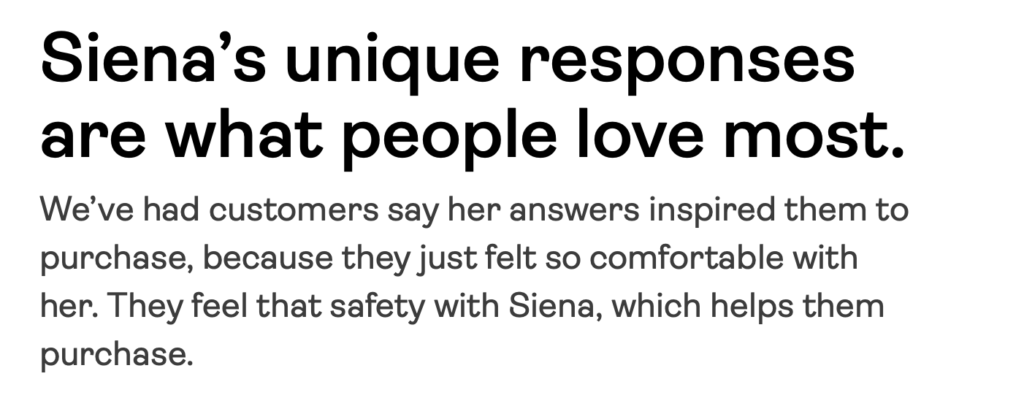
To achieve that Siena offers to use Siena Copilot (notice, how popular is the word “copilot” now in the word of AI). Think of Siena Copilot as your subordinate, which you can instruct on what to do in certain situations.
You can provide concise guidance, specifying the tone and content you desire in customer responses. Whether it’s a detailed and empathetic message or a brief, lighthearted interaction, Copilot should adapt effortlessly with just a sentence or two of instruction.
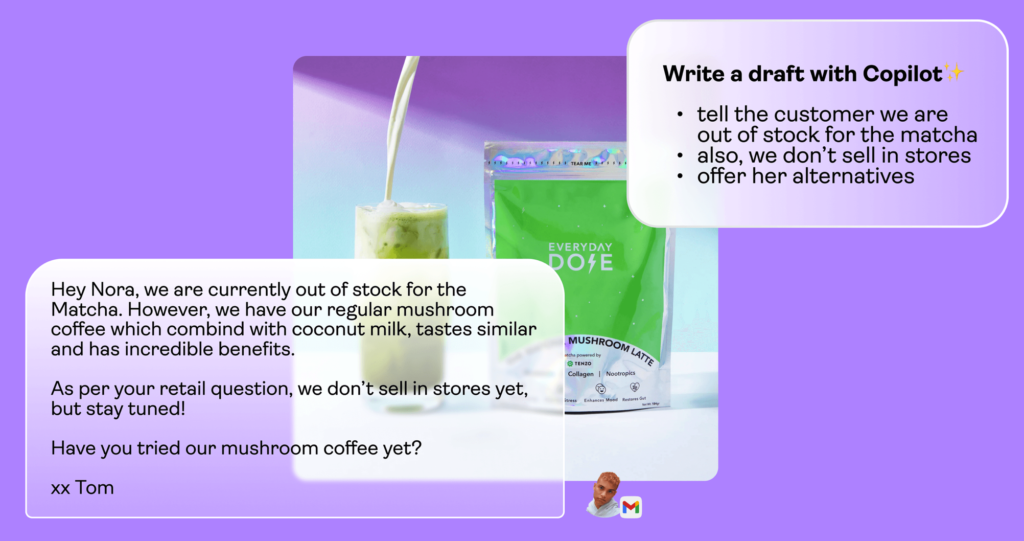
For example, you can instruct Copilot to offer a 30% discount as a gesture of goodwill for an inconvenience caused, emphasizing the customer’s value to the company. In this case the prompt might sound like – “offer 30% discount for the customer’s troubles and make them feel special.”
And Copilot will generate the following response:
We messed up; let’s make it right. I heard your order arrived late which is totally on us. Sorry about the delay!
We appreciate your patience, and to say thanks, we’re tossing in a sweet 30% discount on your next buy. Use code THANKYOU10 at checkout whenever you’re ready for some retail therapy.
We’re working hard to avoid hiccups like this, and your feedback helps a lot. If you need anything else or just wanna chat, hit us up.
Thanks a bunch for hanging in there.
But as you can see Sienna does not provide the full level of autonomy. If it encounters a question it doesn’t have the answer to, it hands off the ticket to your human team. At the same time, Siena is designed to learn from these human interactions. By observing the best responses from your agents, it continually enhances its knowledge base, so it can handle similar queries in the future. Such an approach merges AI efficiency with human expertise.
It’s worth mentioning that the company plans to develop a fully autonomous agent for customers over the next 12 months. Additionally, Siena is launching a learning hub called Siena AI Academy, which will make it easier for customers to integrate AI into their customer service workflows.
The recipe of success
The field of AI agents is highly competitive. To stand out, you need to identify your unique feature. Siena did this by seizing the opportunity in “emotional AI”. They offer not just automation, but also a great emotional experience provided by your customer support backed by Siena. This message resonated with both the market and investors, which is why the company quickly secured its initial funding.
What to replicate in your startup
This is true for all products, but especially for chatbots. Try to differentiate from your competitors. Take Siena for instance, why has it succeeded so far? It distinguishes itself by offering an emotionally powered AI agent, leading to a greatly improved customer experience. A better customer experience, in turn, yields better business metrics.
For instance, when developing a chatbot or AI agent for a specific audience, try to understand their language and make your AI agent adapt the same professional tone.
Of course, a seamless integration with third-party tools used in the market is always essential.
The company
Siena was founded at the end of 2022 in San-Francisco, California.
Now it has a fully remote team of ~25 people distributed across the globe and is actively seeking professionals in areas such as engineering, operations, product development, and go-to-market.
Siena works with dozens of e-commerce brands such as Kitsch, Simple Modern, Verb, or K18, from beauty, health and nutrition, food and beverage, and fashion.
Siena revolutionizes customer service for mid-market and enterprise e-commerce businesses. It generates additional revenue, automates support tickets, and decreases response and resolution times. Notable achievements include generating $46,340 in additional revenue for Kitsch, automating 79% of support tickets for Simple Modern, and reducing first response time by 60% and resolution time by 45% for Everyday Dose.
The founders
Lisa Popovici and Andrei Negrau, both born in Romania and now living in the US. They are also the founders of the service Cartloop. (https://cartloop.io/)
Investors and funding rounds
$4.7M on November 16, 2023 (Seed Round)
UPD: You can check the review of another service ONPlatform. This company has also identified an interesting niche in automating customer service for luxury brands. However, ONPlatform is focused more on improving business metrics rather than enhancing emotional engagement.
If you are planning or already building a startup in the field of chatbots and need expertise on your business model, marketing strategy or just need to strengthen your team, we are here to help:
